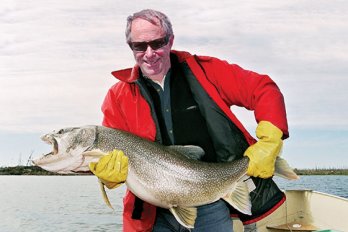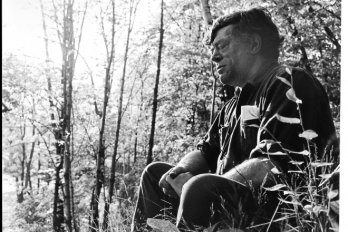denver — One morning last spring, about two hundred people gathered in the second-floor conference room of a hotel near Denver for a three-day work-shop billed as the “1st International Anti-Terror Conference.” The title sounded a little overblown, but the security precautions made it clear that the organizers took the event, and themselves, very seriously. Heavy curtains were drawn over the windows, and participants were handed plastic ID tags with numbers instead of names to keep their identities secret. Two brown-uniformed police officers stood guard outside the door, which remained closed for most of the proceedings.
“We want all of you to feel comfortable,” the group was told by John Giduck, the affable president of Archangel Corporation, a Denver-based security consulting firm that had spent a year planning the conference. “This is a public facility, and it can’t be locked down, so it’s best to take your notes with you if you need to leave for any reason.” And then he added, darkly, “We have reason to believe some of us might come under surveillance.”
The cloak-and-dagger atmosphere fit the mood of the audience. It’s been three years since the September 11, 2001, terror attacks in the United States, and most Americans have settled into a state of wary calm. But the notion that someone out there may be watching and plotting to do you harm is still, for those who came to Denver, a daily preoccupation. The attendees included police officers, detectives, and firefighters from around the United States (some from as far away as Hawaii); U.S. Army officers; private security experts; a Canadian Forces officer; and an analyst who said he worked for the Canadian Security Intelligence Service (csis). Few needed lessons in vigilance. Still, as everyone slowly relaxed over the days of lectures, business-card swapping, and bonding over meals and drinks, it became clear that the chief merit of the conference was as a form of occupational therapy for defenders of what is now grimly called “the homeland.”
The U.S. Department of Homeland Security, the largest restructuring of government security agencies in Washington since World War II, is just over a year and a half old, but it has already changed the nature of police work in thousands of cities across America. Much of that transformation is due to hard cash: more than $4 billion (U.S.) of the $37-billion homeland security budget is funnelled directly to states and cities for use by “first responders” who must cope with the possible scenarios of the new age of terror — from biological and chemical attacks to suicide bombers at the mall. The switch from fighting crime to fighting terror has created unforeseen pressures on Main Street, U.S.A.
“My city council has suddenly got all this money that they’re not sure what to do with,” a fire chief from the Midwest told me as we queued up during a coffee break the first morning. “And when I tell them we ought to use some of it to pay our firefighters more, they get antsy because they think they need to buy shiny new high-tech systems, or they’ll look like they aren’t doing anything.” Others nearby agreed vigorously.
More than money and local politics was on their minds, however. Nearly all admitted to feelings of vulnerability – mixed with a dollop of professional pride — in being the first line of defence against terrorists. A wrong choice would be awful to contemplate. But the Type A personalities who go into police work find it hard to admit doubts to outsiders. “We all worry about the same things,” confided a police captain from North Carolina. “But we never get a chance to talk to each other about them.”
The conference was skillfully calibrated to stroke their egos while assuring them that it was OK to be paranoid. “Homeland security is a sacred, moral responsibility – and you folks are as important as our warriors serving overseas,” said one speaker, an army combat veteran who had won a Medal of Honor in Vietnam. A retired cia counter-terrorism expert offered a sober dose of realism: “There’s a peculiarly American idea that we can do whatever we set our minds to, but this is different; no one can promise an airtight defence.” Another speaker, an ex-fbi official, warned, “They’re coming. They want to get us. And if you think the homeland security people or the fbi have a handle on terrorism in this country, believe me, they don’t.”
Curiously, the acknowledgment that the experts were as much in the dark as everyone else put many of the small-town crime fighters at ease. After all, while terrorism might still seem a foreign concept, they were the pros when it came to murder, larceny, and the other evils of the human spirit they were accustomed to dealing with in their ordinary working lives. Terrorism, when you thought about it, was just a different brand of criminality.
The speaker who made that point best was also the one who touched the deepest emotional chord. Lieutenant Colonel Dave Grossman, a former U.S. Army Ranger whose sartorial style runs to pointed black boots, and a western-cut jacket, over a blue denim shirt, has developed a continent-wide following among police and military special operations units for his lectures on “killology” – a term he coined for the study of modern violence. Grossman came armed with a PowerPoint slide presentation, but he spent much of his time striding up and down the rows of seats with a hand-held microphone, like a talk-show host or a TV evangelist. He clearly knew his audience. “Let’s not make these terrorists ten feet tall,” he said. “You see their type every day in police work, don’t you? Like the spouse abuser who thinks he’s tough, but backs off when the police show up, these people really don’t want a personal confrontation. They can be stopped by one person who has the potential to unhinge them.” Grossman spoke for three hours, nearly without a pause for breath, in a faint Arkansas drawl. When he was done, he earned a sustained round of applause.
Most of his listeners were unlikely to ever confront a genuine terrorist, but it was worth the price of admission to be reassured that good police instincts still went a long way. Many had paid their own expenses to Denver. “I couldn’t get my bosses to shell out for this,” confided a short, paunchy detective from upstate New York. “So I told them, the hell with you, I’m taking vacation time. And I’d do it again. I need to know this stuff, and we never get a chance to hear what other people are doing.” A security chief for a Florida private school said meeting emergency officials and law-enforcement personnel from his region had given him a renewed sense of confidence that he could handle whatever came his way. “You don’t want to be swapping business cards when something happens,” he said. The “international” part of the conference was provided by experts from Russia and Israel, who had the sad benefit of first-hand experience. Major Konstantin Komarov, a thin, taciturn special forces officer from Russia, spelled out lessons learned from investigating the tragic Nord-Ost theatre hostage-taking incident in Moscow in 2002. He quietly debunked Washington’s rhetoric about terrorism as a “global war,” observing that no society could sustain high levels of anticipatory stress for long. What’s required instead, he suggested, is a “state of relaxed tension that allows you to function normally, while you are prepared for an attack.” Someone asked how much information should be made public when the unthinkable happened. Komarav said that should be the decision of police authorities, but he added, with a hint of a smile, “Whatever else, don’t let the politicians get involved.” That got the biggest laugh of the conference.




